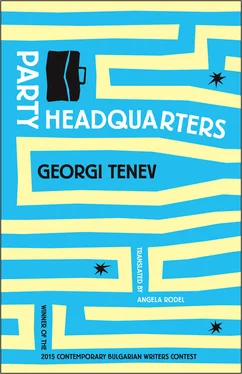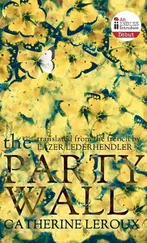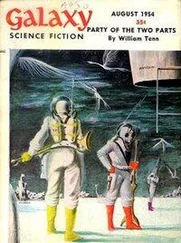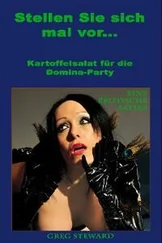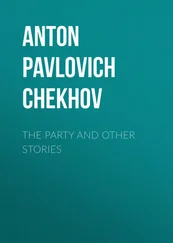Check-out
I sit up in bed. I can reach out exactly far enough to grab the knife off the table. In my crazed hunger I had pounced on — and eaten (last night, I think it was last night) — devoured the food, and the knife remained there, like a harmful convenience — why?
Why am I cutting my ankle three or four times — three or four lines (I’d like even more) — but it’s best to stop.
A stream of blood seeps through the leg of my jeans, and then another one next to it. Soon it isn’t even beautiful anymore, just a shapeless red stripe. The splotches slowly soak through, I can feel how the threads in the cloth swell up, like the black crumbs on a slice of toast as they soften up from the butter — the butter, the blood saturates them. The night rolls back, the morning comes, the train of black hours gathers up its cars full of ghostly passengers. The world of nighttime fears is terrifying due to the emptiness that surrounds its characters. In the blackness, their dim faces don’t cast back reflections. But the light — here it is again, the new, tolerable, daytime face of death. The death, so to speak, that appeals to us.
Come on, I say to myself, let’s start thinking about bodily functions. The body is alive, so it’s born to die. Death, considered realistically, shouldn’t frighten us. My pant legs are heavy, the blood streams out.
So now she finally comes out of the bathroom, buttoning up her clothes. She looks around with a very strange gaze, the eyes of a person who hasn’t found what she wanted. But if I were to ask her what she was really looking for, what more she could want from an empty hotel room — hotel rooms are always somehow empty, despite the furniture, despite the luggage — would she be able to formulate her desire? What does she know about me besides my name?
“So you’re really his son, then?”
I open the briefcase and give her a pack of bills.
“So he’s sick, huh? That sucks. Too bad.”
I notice she’s looking at the money, however, as she folds a piece of gum into her mouth and mashes it between her front teeth:
“I don’t have a father. It’s better that way.”
She combs her hair in front of the mirror, puts on lipstick.
“So I don’t have to worry about whether he’s sick now, somewhere or with something.”
She rubs her lips together, smearing the lipstick, fixing the edges with her finger.
“I don’t even want to know his name.”
The name sick passes within a hair’s breadth of the concept healthy , I think to myself.
She opens the door, looks around the room — at the money, of course — then exhales and without saying goodbye, walks out.
What a strange coincidence, COMING ACROSS A BULGARIAN GIRL ON THE REEPERBAHN. I don’t know, Hamburg really is a strange city.
I also don’t know whether it is acceptable to bring prostitutes to this hotel, but it’s a little late to ask.
The guys at reception look at me strangely, but don’t say anything. The key drops into the marble box that says:
“Thank you! Please come visit us again.”
I pay without saying a word and without staggering.
At dawn the rats are hopping lightly along the canal. I step aside onto the grass — the green, I think to myself, will soak up the blood. I shouldn’t leave a trace on the clean pathway, I think to myself, on the blue asphalt — in my imagination it can now serve as a bridge, which finally leads to the beyond.
p. 26: Parody of the poem “Northern Lights” by the proletarian poet Hristo Smirnenski (1898–1923).
p. 47: Bulgarian cosmonauts participated in the Soviet space program. The first Bulgarian visited space in 1979 on the Russian ship Soyuz-33 . The second — and for the time being, the final — Bulgarian cosmonaut blasted off in 1988, several years before the break up of the USSR.
p. 62: A line from the song “Unlived Things” (1985) by The Crickets, the most popular Bulgarian rock group of its day, formed in 1967.
p. 63: This is a line from another Crickets’ song, “I Am Simply a Person” (1990).
p. 71: Anton Semenovych Makarenko was a pre-World War II Soviet pedagogue who created an educational system for homeless children living in colonies in Russia. To Bulgarian schoolchildren, this system was a symbol of harsh order and cruel discipline.
p. 97: A parody of the song “As I’m Loving You” by the Argirovi Brothers, a Bulgarian pop duo made up of the identical twins Blagovest and Svetoslav. They were among the most popular stars during the 1980s and the perestroika era.
p. 98: A mausoleum stood in the center of the Bulgarian capital from 1949 to 1999, housing the mummified body of Georgi Dimitrov, the leader of the Bulgarian Communist Party and the general secretary of Comintern.
p. 109: A parody of the poem “Bulgaria” by Communist poet Georgi Dzhagarov (1925–1995).
p. 110: A line from the song “At Every Kilometer” (1969), the theme music from the Socialist-era propagandistic television series of the same name, which was the most widely viewed program in Bulgaria during the 20th century.
p. 117: A play on the Bulgarian word chlen , which can mean both “the male sex organ” and “a legal article,” as in the notorious Article One of Bulgaria’s socialist constitution: “The People’s Republic of Bulgaria is a socialist state, headed by the urban and rural Working Class. The leading power in society and the state is the Bulgarian Communist Party. The Bulgarian Communist Party leads the founding of a mature socialist society” (1971).
Georgi Tenev, before penning the Vick Prize-winning novel Party Headquarters , had already published four books, founded the Triumviratus Art Group, hosted The Library television program about books, and written plays that have been performed in Germany, France, and Russia. He is also a screenwriter for film and TV.
Angela Rodel earned an MA in linguistics from UCLA and received a Fulbright Fellowship to study Bulgarian. In 2010, she won a PEN Translation Fund Grant for Georgi Tenev’s short story collection. She is one of the most prolific translators of Bulgarian literature working today.
